My name is Liam Sturgess and I am your host for this weekly news roundup, presented by Rounding the Earth. Before we get started, I want to remind everyone that you can support the show by sending us a Rumble Rant, a tip on Rokfin, or LBRY tokens on Odysee. Even more importantly, I invite you to join us over on our Locals community, where I have posted the show notes for today's episode along with the links to watch the show live on Rumble, Rokfin and Odysee, as well as directly through the StreamYard platform.
Join the community as a free member or sign up to support us for $5 per month to gain access to Locals-exclusive livestreams.
Without further ado, let’s get started!
Jacinda Ardern resigns as New Zealand PM
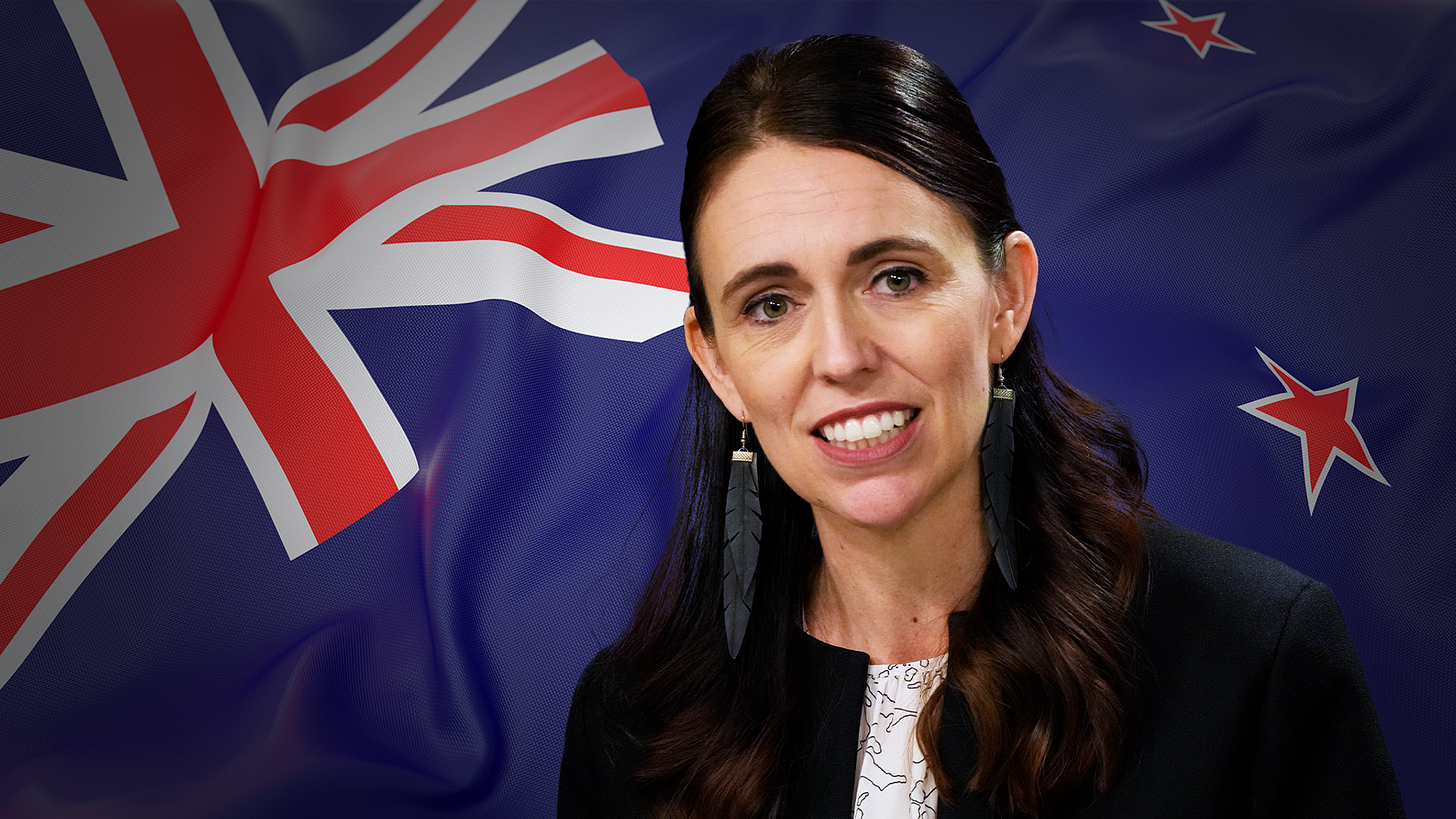
Jacinda Ardern has resigned as New Zealand’s Prime Minister as of February 7, 2023.1 In her announcement, Ardern said:2
I am not leaving because it was hard. Had that been the case I probably would have departed two months into the job. I am leaving because with such a privileged role, comes responsibility, the responsibility to know when you are the right person to lead, and also, when you are not. I know what this job takes, and I know that I no longer have enough in the tank to do it justice. It is that simple.
These comments spurred responses from media commentators suggesting Ardern was leaving due to “burnout” and/or that "abuse and threats against the prime minister contributed to her stepping down."3 4 However, as pointed out by Tom Slater in the National Post, her choice to move on was far more likely to be related to her lower-than-ever approval rating and overall loss of confidence from her constituents.5
“I am not leaving because I believe we can’t win the election,” she said, fighting back tears, “but because I believe we can and will, and we need a fresh set of shoulders for that challenge.” The global commentariat seems to have bought it, blithely ignoring the polls, which put her popularity at its lowest-ever level in office.
Indeed, it’s testament to the enduring power of Jacindamania — among journalists, if not the New Zealand public — that many have repeated her reasoning for stepping down totally uncritically. In the UK, Sky News’ Beth Rigby might as well have been Ardern’s press secretary, so gushing was her take. “I’ve only ever seen political leaders forced out or voted out,” she tweeted, “but in Ardern we find a rare exception, who again shows us how to lead differently.”
Recall that in 2020, Ardern cemented her position in the brick wall of authoritarianism when she asserted that her NZ government would be the “single source of truth” for matters related to COVID-19.6
Albert Bourla confronted over sudden deaths at Davos

Reporting from the World Economic Forum in Davos, Switzerland, Rebel News reporter Avi Yemeni managed to ask Pfizer CEO Albert Bourla a number of rather uncomfortable questions about his company’s experimental gene therapy, BNT162b2 - more commonly referred to as the “Pfizer-BioNTech COVID-19 vaccine”.7
From Rebel News:8
Here's a list of every question Ezra and Avi asked Bourla, whose only responses were “thank you very much” and “have a nice day.”
When did you know that the vaccines didn't stop transmission?
How long did you know that without saying it publicly?
Why did you keep it a secret that your vaccine did not stop transmission?
You said it was 100% effective then 90% and 80%, then 70% — but now we know that vaccines do not stop transmission. Why did you keep that a secret?
Is it time to apologize to the world? To give refunds back to the countries that poured all their money into a vaccine that doesn't work?
Are you ashamed of what you've done in the last couple of years?
Are you proud of what you've done the past few years?
You've made millions off the backs of people's livelihoods, how does it feel to walk the streets as a millionaire on the backs of the regular person at home in Australia, in England and Canada?
What do you think about on your yacht? What do you think about on your private jet?
Are you worried about product liability?
Are you worried about myocarditis?
What about the sudden deaths?
What do you ahve to say about young men dropping dead from heart attacks every day?
Why won't you answer these basic questions? No apology?
Do you think you should be charged criminally for some of the behaviour you've been a part of?
How much money have you personally made off the vaccine?
How many boosters do you think it'll take for you to be happy enough with your earnings?
Who did you meet with here in secret?
Will you disclose who you met with?
Who did you pay commissions to?
In the past, Pfizer has paid $2.3 billion in fines for deceptive marketing. Have you engaged in that same conduct again?
Are you under investigation, like you were before, for deceptive marketing?
If any other product in the world doesn't work as promised, you get a refund. Should you not refund countries that pay billions for your ineffective vaccine?
Are you only used to speaking to sympathetic media, is that why you don't know how to answer questions?
Ending Human Dignity
By far the most alarming thing on the horizon in the public health sphere is the stated intentions of the World Health Organization to implement an international so-called “pandemic treaty,” which would grant the agency the power to set binding “recommendations” that member states would be obliged to follow in the event of a future outbreak of disease.
The sixth meeting on these amendments was kicked off about a week ago, with WHO Director-General Tedros Adhanom Ghebreyesus announcing more than 300 proposed changes to the International Health Regulations.9
On January 17, Unlimited Hangout published a discussion between investigative journalists Whitney Webb and Johnny Vedmore titled “Jeremy Farrar & the WHO”.10
The pair point out that despite the WHO’s stated intention to hold the final vote on these proposed amendments in May 2024,11 there is reason to believe they will move this date ahead without warning. As per James Roguski on Substack:12
The “official” statements of the World Health Organization have consistently stated that they do NOT plan to adopt the proposed amendments to the International Health Regulations until the 77th World Health Assembly in 2024.
https://www.who.int/about/governance/world-health-assembly
However, if the proposed amendments to the International Health Regulations are submitted to the WHO by January 15, 2023, then they COULD be adopted by the 76th World Health Assembly as early as May 2023.
Even more alarming than this is one of the amendments highlighted by Roguski and reiterated by Webb and Vedmore: the removal of “human dignity” from the regulations altogether.
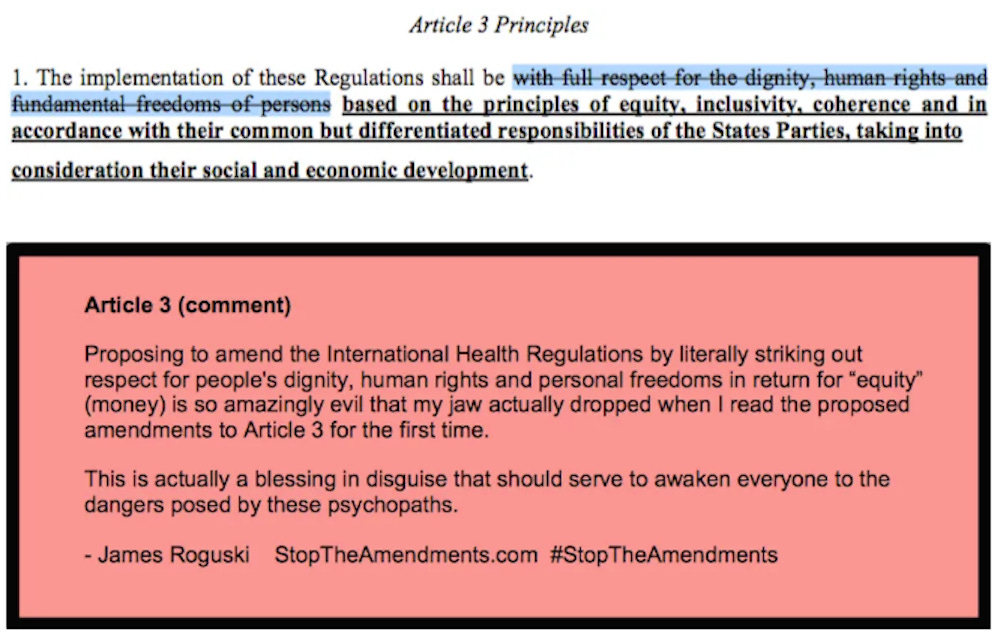
While the meeting took place entirely behind closed doors with no livestream or opportunity for public comment, the proposed amendments themselves are available for download on the WHO website.
Threatening Africa
As elaborated on in the Unlimited Hangout podcast, there has been an interesting thorn in the side of the imposition of these new International Health Regulations: Africa.
While the majority of the world participated in a number of falsehoods that led to the perceived COVID-19 pandemic, a handful of nations in Africa stood their ground.
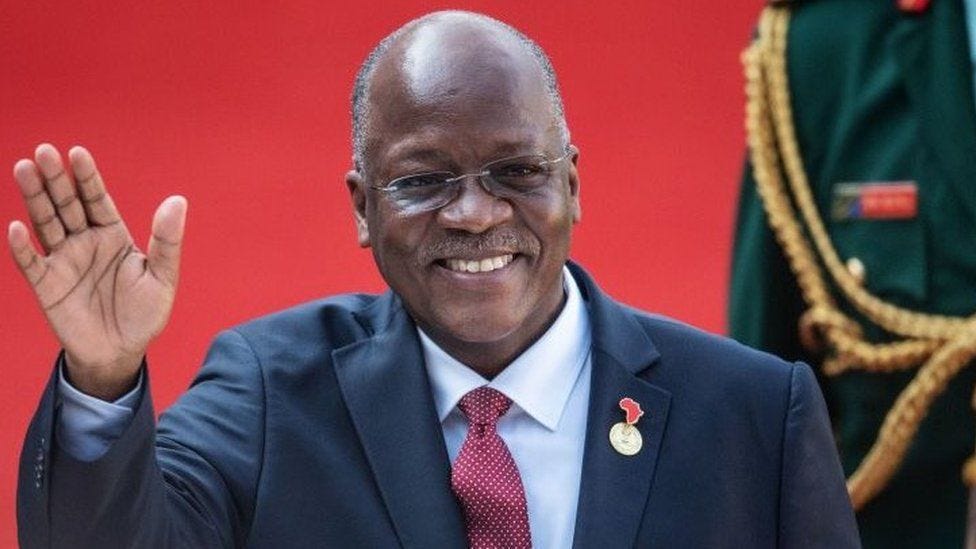
Tanzania, for example, stopped reporting COVID-19 case data all the way back in May 2020.13 President John Magafuli declared Tanzania to be “free of COVID-19” the following month.14 He vocally opposed the idea of mass-vaccinating his citizens with “foreign vaccines” in January 2021, even going so far as to suggest that people who had travelled abroad to be injected brought back “a strange type of corona.”
The last time Magafuli was seen in public was February 27, 2021. His death was announced on March 17, described as being from a pre-existing heart disease which took his life while in hospital.15 Wasting no time at all, the Tanzanian government "signalled it is now taking the disease seriously" by signing up for COVAX, the global vaccine distribution center funded by the World Health Organization, Gavi, and the Coalition for Epidemic Preparedness Innovations (CEPI).16
Shamefully, Reuters chose to highlight the fact that “the death of its COVID-sceptic and vaccine-sceptic president” is what slowed Tanzania down. I hope Omar Mohammed, Maggie Fick and Alison Williams are proud of what they’ve done.
Magafuli was the first Tanzanian President to die while in office. But don't worry - as Reuters insists, there’s nothing to see here.17
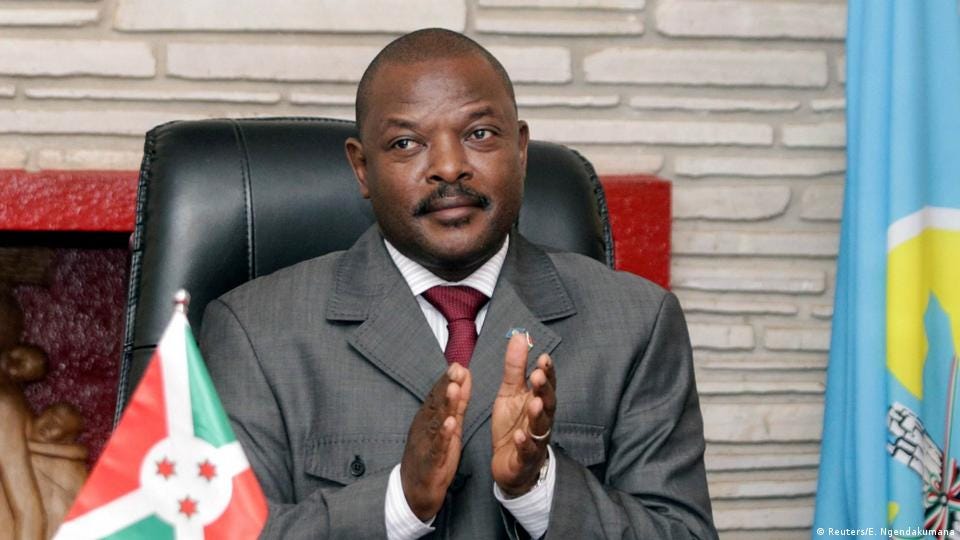
Another prominent example is Burundi, which opted not to impose “lockdown” measures of any kind. On May 12, 2020, President Pierre Nkurunziza expelled a World Health Organization delegation from the country, reportedly accusing the agency and its officials of “unacceptable interference in [Burundi]’s management of the coronavirus.”18
Then, out of the blue, Nkurunziza… well, died suddenly. After a short illness, he was reported to have suffered a sudden heart attack while in hospital.19 So here's a question: why does this headline in The Guardian strongly suggest he was killed by COVID-19?

Once again, Nkurunziza’s death was implicitly celebrated while his successor, Evariste Ndayishimiye, swiftly imposed “preventative measures” to combat “the COVID-19 pandemic”, which he declared was “the biggest enemy of Burundians.”20
At the risk of coming across as overly speculative, it occurs to me that it may be worthwhile to consider the possibility that the location of these deaths is more important than it may have seemed back in 2020. Food for thought…
Reuters can put out as many dismissive, insensitive propaganda pieces as they like, but that doesn’t conceal the reality that it’s weird for so many dissident heads of state to die unexpectedly, with so little explanation, in such rapid succession. So novel was this phenomenon in 2020 that a team of Africa researchers at the University of Edinburgh felt it necessary to come up with an explanation. Their paper, published in May 2021 in BMJ Global Medicine, focuses on those African leaders who reportedly died of COVID-19, blaming it on “comorbidity, poorly resourced healthcare and possible restrictions in accessing out-of-country health facilities, the underreporting of cases, and, later, the disproportionate impact of the so-called ‘South African’ variant (501Y.V2).”21

On the other hand, by August 2020, the world appeared to agree that Africa was basically doing fine. An article in Science suggested that “large numbers of infections have occurred but the death toll remains low,” with antibody tests demonstrating widespread existing immunity to SARS-CoV-2 among the Kenyans tested.22 Of course, what the Wellcome Trust-funded scientists at the Kenya Medical Research Institute "struggle to explain" is that there are a few very good (and rather obvious) reasons why Africa had absolutely nothing to worry about. For example, the widespread prophylactic use of hydroxychloroquine in both the domestic population and international travellers for the purpose of malaria prevention.23
More recently, however, it was a coalition of African leaders that managed to slow down the implementation of the updated International Health Regulations. Moses Keetile, deputy permanent secretary in the health ministry of Botswana, read a statement on behalf of 47 African nations indicating they would be withholding support for the amendments in May 2022.24
Given this ongoing friction, it becomes hard to see what followed as anything short of a threat to Africa.
On October 23, 2022, the Johns Hopkins Center for Health Security and the Bill & Melinda Gates Foundation led a new “pandemic preparedness” exercise called Catastrophic Contagion.25 Held at the Grand Challenges Annual Meeting in Brussels, Belgium, the event's participants included primarily representatives of African nations along with Bill Gates himself (!!!) and a handful of familiar names from previous such exercises, such as Tom Frieden and Tom Inglesby.
What is unnerving about this particular exercise - apart from Gates making a personal appearance as a participant - is the “fictional” scenario’s focus on African children:
The extraordinary group of participants consisted of 10 current and former Health Ministers and senior public health officials from Senegal, Rwanda, Nigeria, Angola, Liberia, Singapore, India, Germany, as well as Bill Gates, co-chair of the Bill & Melinda Gates Foundation.
The exercise simulated a series of WHO emergency health advisory board meetings addressing a fictional pandemic set in the near future. Participants grappled with how to respond to an epidemic located in one part of the world that then spread rapidly, becoming a pandemic with a higher fatality rate than COVID-19 and disproportionately affecting children and young people.
Participants were challenged to make urgent policy decisions with limited information in the face of uncertainty. Each problem and choice had serious health, economic, and social ramifications.
Naturally, the “lessons learned” from the exercise included the need to establish “a global network of professional public health leaders who can work together to improve epidemic preparedness and response and strive for consensus on scientific issues in advance of the next major outbreak.”26 They specifically mention the need for a "Pandemic Corps", which falls perfectly in line with what the WHO appears poised to push through.
In conclusion, I refer to the advice that Webb and Vedmore offer at the end of their podcast: watch Africa like a hawk, because if anything is going to happen in the near future, it seems highly likely to be there.
That’s all for today, folks. Thank you so much for tuning in to Rounding the News, and I hope you learned as much as I did.
If you’ve enjoyed the show, please drop us a Rumble Rant or a tip on Rokfin, and before you leave, go sign up as a member of our Locals community at www.RoundingtheEarth.locals.com. You can even snag yourself a free month of premium support using the promo code included on the pinned comment, after which you can keep us going and gain access to behind-the-main-scenes discussions that we’re keeping within our more intimate community.
I have been Liam Sturgess, and you can find me at www.LiamSturgess.com, or on Twitter @TheLiamSturgess. See you next week!
Boulton, A. (2023, January 20). Jacinda Ardern may be dodging humiliation by quitting now - but she’s sure of a lasting place as a star. Sky News. https://web.archive.org/web/20230120043954/https://news.sky.com/story/jacinda-ardern-may-be-dodging-humiliation-by-quitting-now-but-shes-sure-of-a-lasting-place-as-a-star-adam-boulton-12790704
Associated Press. (2023, January 19). Jacinda Ardern to resign as New Zealand prime minister. CBC. https://archive.ph/CpkwA
Whiteman, H. (2023, January 19). Jacinda Ardern’s resignation shows burnout is real -- and it’s nothing to be ashamed of. CNN. https://archive.ph/2jKat
McClure, T. (2023, January 20). Jacinda Ardern: political figures believe abuse and threats contributed to PM’s resignation. The Guardian. https://archive.ph/rU2Ml
Slater, T. (2023, January 19). Tom Slater: Jacinda Ardern was the international poster girl for “kindly” authoritarianism. National Post. https://archive.ph/QA0Ai
Liles, J. (2022, July 26). Did New Zealand PM Jacinda Ardern Once Say, “Unless You Hear It from Us, It Is Not the Truth”? Snopes. https://web.archive.org/web/20221223104528/https://www.snopes.com/fact-check/jacinda-ardern-truth/
“What About The Sudden Deaths?”: Pfizer CEO Confronted At Davos Over COVID-19 Vaccine. (2023, January 20). ZeroHedge. https://www.zerohedge.com/covid-19/what-about-sudden-deaths-pfizer-ceo-confronted-davos-over-covid-19-vaccine
Every question we asked Pfizer CEO Albert Bourla at the World Economic Forum. (2023, January 18). Rebel News. https://archive.ph/tpwxg
WHO Director-General’s opening remarks at 6th meeting of the International Health Regulations Review Committee. (2023, January 12). World Health Organization. https://web.archive.org/web/20230117111015/https://www.who.int/director-general/speeches/detail/who-director-general-s-opening-remarks-at-6th-meeting-of-the-international-health-regulations-review-committee---12-january-2023
Jeremy Farrar & the WHO with Johnny Vedmore. (2023, January 17). Unlimited Hangout. https://web.archive.org/web/20230117190728/https://unlimitedhangout.com/2023/01/resources/show-notes/jeremy-farrar-and-the-who/
The WHO Pandemic Treaty. (2022, September 20). Leslyn Lewis. https://web.archive.org/web/20230116224901/https://leslynlewismp.ca/2022/09/20/the-who-pandemic-treaty/#:~:text=The%20Pandemic%20Treaty%20is%20currently,input%20into%20the%20proposed%20treaty.
Roguski, J. (2023, January 3). SECRET NEGOTIATIONS. Substack. https://web.archive.org/web/20230120002120/https://jamesroguski.substack.com/p/secret-negotiations
Cawthorne, A., Stonestreet, J., & Jones, G. (2021, January 27). Decrying vaccines, Tanzania leader says “God will protect” from COVID-19. Reuters. https://archive.ph/ghwqO
Coronavirus: John Magufuli declares Tanzania free of Covid-19. (2020, June 8). BBC News. https://archive.ph/PW0bF
Fick, M., Maclean, W., & Goller, H. (2021, March 17). Tanzania’s President John Magufuli dead at 61. Reuters. https://archive.ph/K1wxi
Mohammed, O. (2021, June 17). Tanzania poised to join COVAX vaccine-sharing facility - WHO. Reuters. https://archive.ph/eaofl
Reuters Fact Check. (2021, July 22). Fact Check-No evidence five leaders were killed for opposing COVID-19 vaccines. Reuters. https://archive.ph/nbGMa
AFP. (2020, May 14). Burundi expels WHO coronavirus team as election approaches. The Guardian. https://archive.ph/mSByI
Burke, J. (2020, June 9). Burundi president dies of illness suspected to be coronavirus. The Guardian. https://archive.ph/dZU7Q
AFP. (2020, July 1). Burundi changes tack as president declares COVID-19 “biggest enemy.” France 24. https://archive.ph/3288R
Falisse, J.-B., Macdonald, R., Molony, T., & Nugent, P. (2021). Why have so many African leaders died of COVID-19? BMJ Global Health, 6(5), e005587. https://doi.org/10.1136/bmjgh-2021-005587
Nordling, L. (2020, August 11). The pandemic appears to have spared Africa so far. Scientists are struggling to explain why. Science. https://archive.ph/c5RAW
Center for Global Health Division of Parasitic Diseases and Malaria. Medicines for the Prevention of Malaria While Traveling Hydroxychloroquine (PlaquenilTM). Centers for Disease Control and Prevention. Retrieved November 9, 2022, from https://web.archive.org/web/20221109120140/https://www.cdc.gov/malaria/resources/pdf/fsp/drugs/hydroxychloroquine.pdf
Farge, E., & Rigby, J. (2022, May 24). Africa objects to U.S. push to reform health rules at WHO assembly. Reuters. https://archive.ph/8YDQ7
Catastrophic Contagion, a high-level pandemic exercise in 2022. Catastrophic Contagion. Retrieved December 12, 2022, from https://archive.vn/v2THw
Lessons from the exercise. Catastrophic Contagion | a Pandemic Tabletop Exercise. Retrieved January 2, 2023, from https://archive.ph/we9Bd

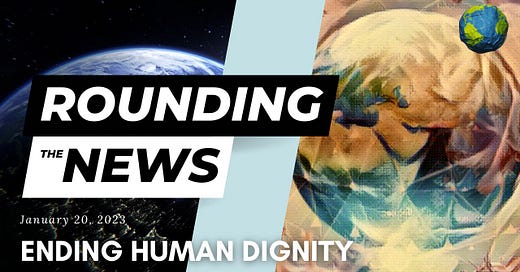



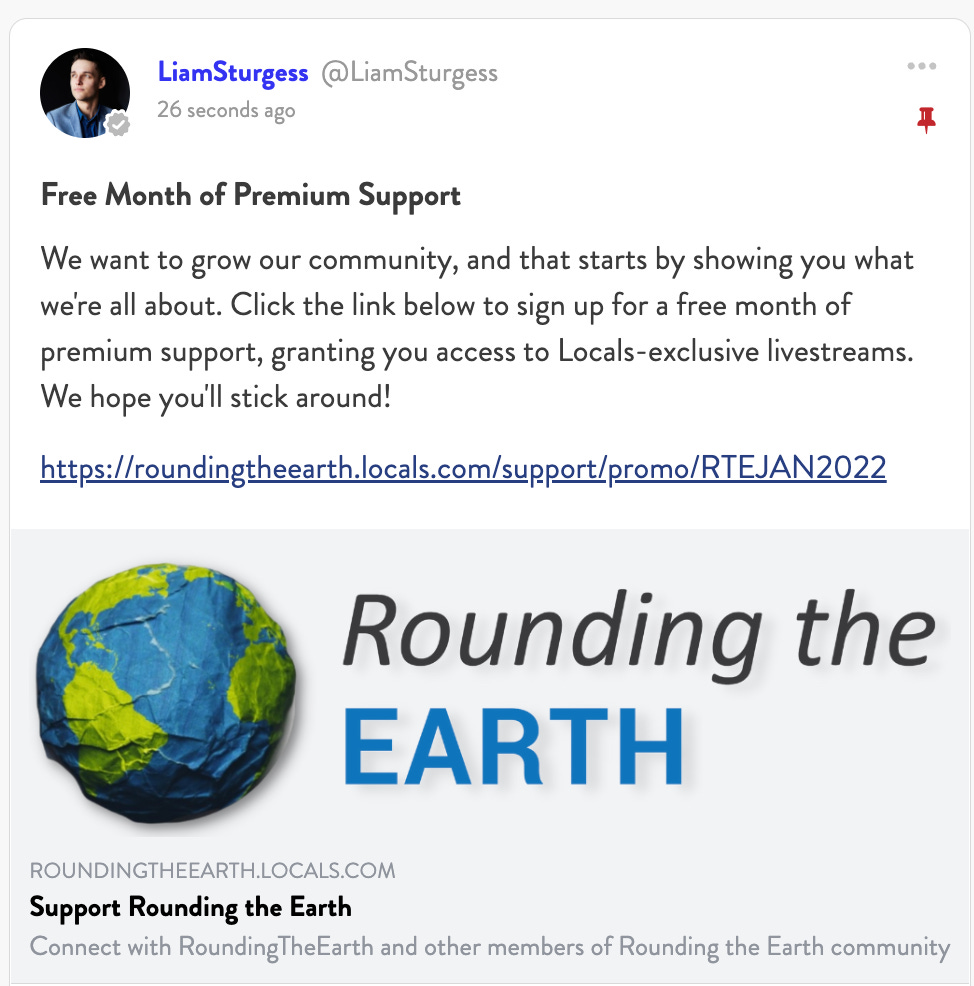
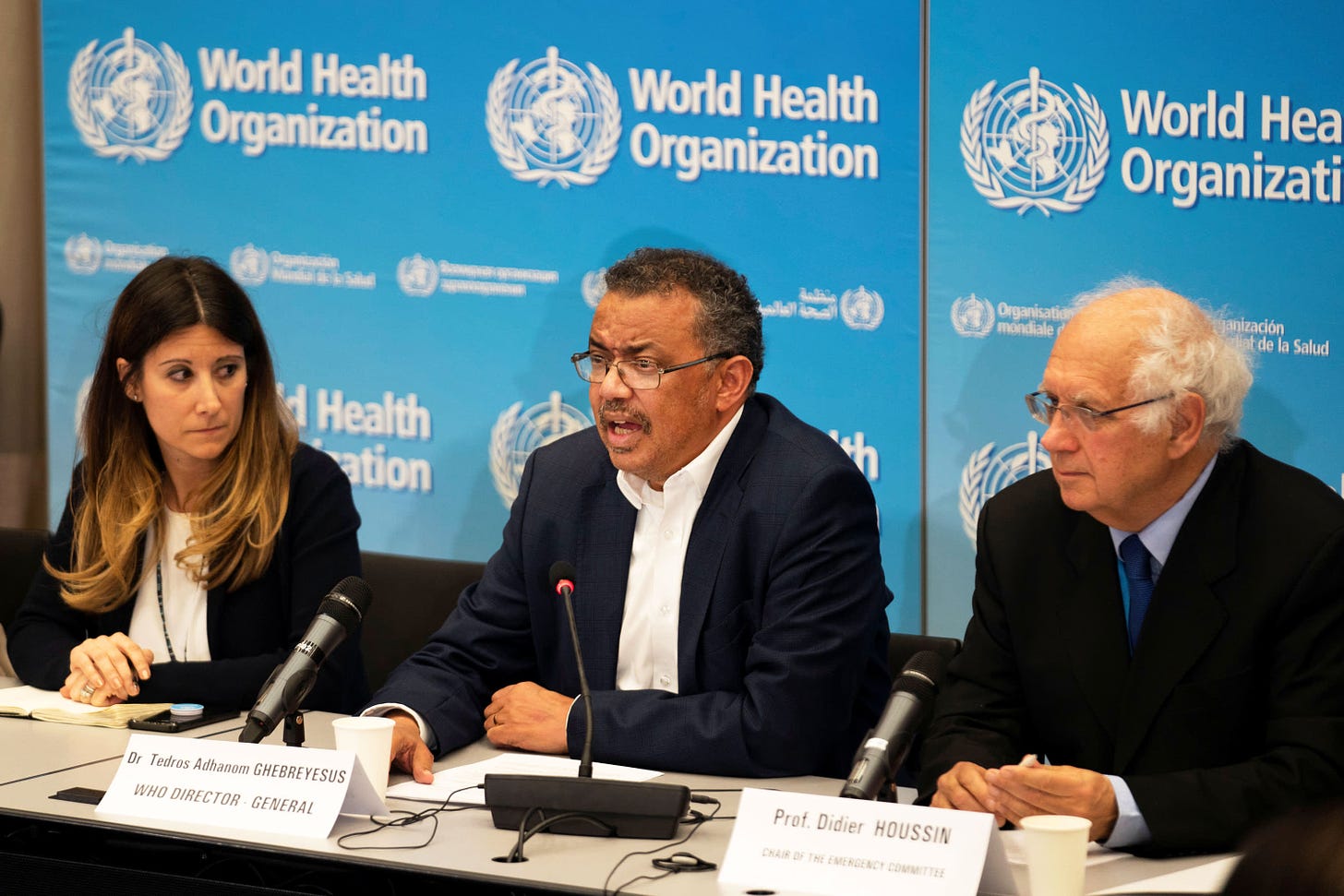

I love the Rebel News clip.
Nice round up, Liam, as always.